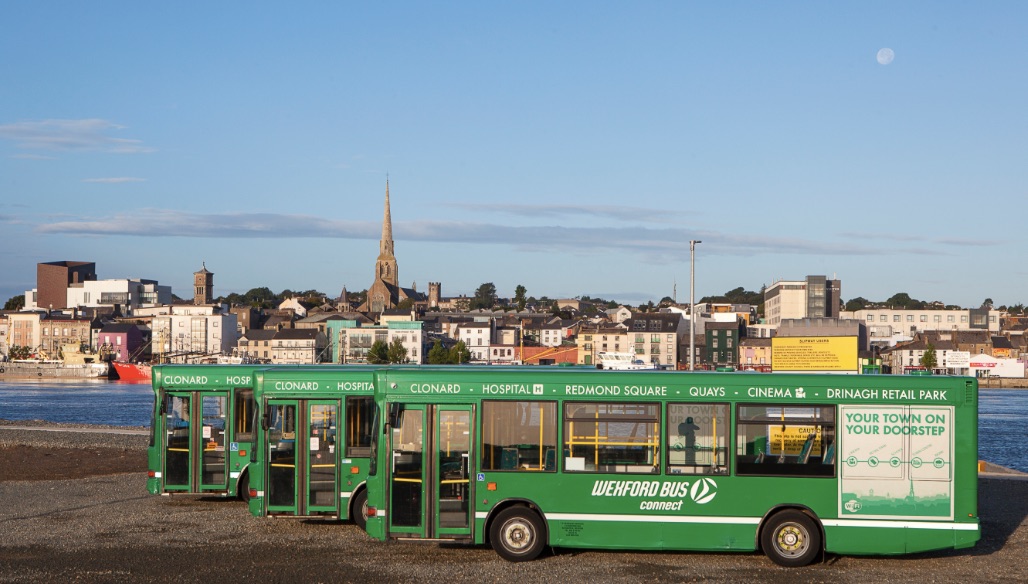Welcome to the Keystone Column. This week, we look at the importance of competitiveness from a number of perspectives. First we look at the threats to Irish agribusiness from Brexit, then we look at real competitiveness issues in two commercial semi-state companies. Finally, we look at an emerging trend for barring unethical companies from procurement in Germany. The weekly tenders report is also provided.
Business Stories
Brexit and Agribusiness
Economist Dan O’Brien wrote of the calamitous potential consequences of a hard Brexit for Irish agriculture. Irish farming is heavily dependent on the UK market for its produce and does not have natural replacement markets across the rest of the post-Brexit EU. The biggest threat is London opting for a cheap food policy to ensure households feel a Brexit boost at the cash till. The EU artificially maintains high food prices through the Common Agricultural Policy. The UK has a long history of sourcing from all over the world going back to its days of imperial pomp. Irish agriculture faces huge challenges from New Zealand lamb, Argentine Beef and commercial crops from around the world. The potential for huge reductions in food prices is there. It is difficult to imagine that the UK will not seek to benefit from this potential consumer benefit.
Introducing more competitiveness to the bus sector
The private bus operators representative groups raised a topic last raised during the late Seamus Brennan’s brief tenure as Transport Minister. Mr. Brennan wanted to introduce competition to the Dublin bus route network. Currently, a maximum of 10% of state subsidised routes are available to private operators for competitive bidding. 90% are reserved for Bus Eireann (which has failed) and Dublin Bus. A frequent canard thrown out by union representatives is that private operators will simply cherry pick the best routes and ignore the less profitable routes. There is a simple solution to this and that is organising routes in lots comprising valuable and less valuable routes in roughly equal volumes. Then let the market bid on the provision of the routes. The success of private operators on longer distance routes shows that they can provide good services, at lower costs, where they are allowed to do so. Many private operators also operate bus services with a public service obligation in regional towns (e.g. Wexford Bus in Wexford town). A decision needs to be made as to whether monopolies, and their associated inefficiencies, are either desirable or warranted in 2017.
Interesting Trends
Register of competition & corruption
Germany is rolling out a register to track and manage unethical companies. This register, which will be in place by 2019, will be used to delist companies from being able to bid for / benefit from public procurement contests. At it’s broadest, this will not just relate to anti-competitive and corrupt practices. Violations of any of the items typically included in bona fide statements including respecting labour law may also be grounds for exclusions from such contracts (as they impact competitiveness). This is an emerging trend in the EU and while clearly required by the 2014 Procurement Directives, this is the first significant step to manage the eligibility of suppliers for government contracts.
Innovation
Rising postage prices and competitiveness
An Post, the Irish Postal Service is an unusual organisation. There is something anachronous about hand delivering pieces of paper in the year 2017. Mail volumes are falling by up to 10% year on year. This week’s move to increase the price of stamps to €1 (a 38% hike) per standard letter seems to be a counter-intuitive measure. Increasing prices tends to dampen demand. Alternatives to posting become increasingly viable with this latest departure by An Post. There are several scanning solutions that should enable companies (if they haven’t already done so) to come close to complete automation of the majority of their correspondence. As with the Bus example earlier, the consumer is being asked to fund a business model and service which is out of synch with the times we live in. A lack of competitiveness and high prices are the perfect conditions for software developments to creatively disrupt a market.
An Post have created an opportunity for software developers to put them out of business now and it is likely that some businesses will simply shift the vast majority of their communications to electronic formats from now on.
New public procurement tenders this week
Visit the Keystone website to view our take on the 500+ active public procurement opportunities with more than five days until their deadline. There are a vast range of services, supplies and construction related to public procurement opportunities in the following sectors (there are many more sectors than the sample list below):
- Construction and related trades,
- Professional & Advisory Services,
- PR, Media, Advertising and related,
- ICT supplies and services,
- Training,
- Property & facilities management,
- Vehicle & automotive,
- Catering and related services,
- Cleaning and related services,
- Waste Management,
- Maintenance and related services,
- Horticultural supplies & services,
- Research & environmental monitoring,
- Printing, office supplies and related services,
- Trades,
- Medical and scientific research, supplies and services,
- A vast range of other services and supplies.
Businesses interested in any of these strategic procurement opportunities that are unsure of how they can follow-up on these tenders can contact Keystone at any stage. We would be happy to discuss your needs and where they may fit with your business growth plans. These public procurement opportunities are sources of business growth and innovation for companies across the country.
Please note, e-tenders often has public procurement opportunities incorrectly categorised so people relying on e-tender alerts could easily miss out on opportunities if they are dependent on it. E-tenders is only as reliable as the people inputting tenders and mistakes are made very frequently. The Keystone Column includes all live tenders posted on e-tenders that have five or more days until their deadline as at March 09th 2017.

